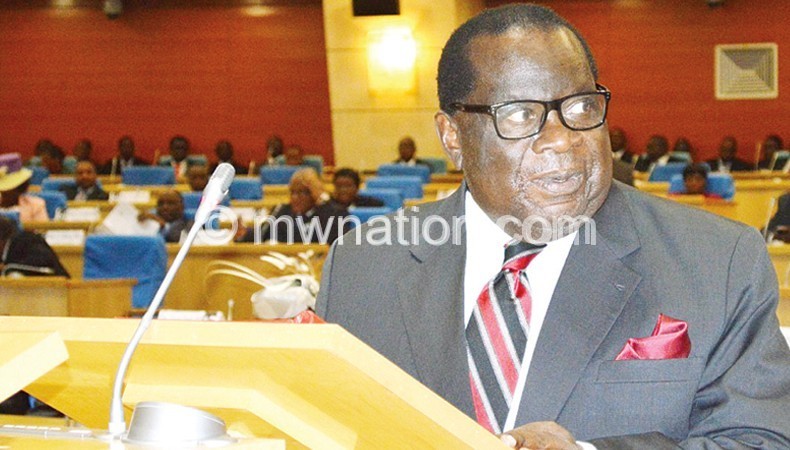Experts question Goodall’s optimism
Economists and the Malawi Confederation of Chambers of Commerce and Industry (MCCCI) have questioned the optimism by authorities about the macroeconomic outlook for the next financial year.
In the 2015/16 budget statement presented on Friday in Lilongwe, Minister of Finance, Economic Planning and Development Goodall Gondwe said the fiscal plan assumes an “optimistic” macroeconomic outlook for 2015/16 fiscal year.
For instance, he said inflation rate is projected to decline to 16.4 percent, interest rates will generally drop based on the expectation that the Reserve Bank of Malawi (RBM) policy rate, currently at 25 percent, will be reduced in response to the dampening trend in inflation.
Gondwe said government further expects the exchange rate to be more stable than it was during 2014/15 financial year.

But in an interview, Economics Association of Malawi (Ecama) president Henry Kachaje thinks Gondwe is overly optimistic about his assumptions, which he doubts will ever come to pass.
“Where is he [Gondwe] getting this confidence? It’s a bit challenging because the floods will push inflation [rate] upwards because there will be less maize produced this year,” he said.
Maize, as part of food, has a huge weight at 50.2 percent in the consumer price index (CPI) that measures changes in the price level of a market basket of consumer goods and services purchased by households.
University of Malawi’s Chancellor College economics professor Ben Kaluwa yesterday also doubted the possibility of the country achieving the feat.
Said Kaluwa: “Price of fuel continues to rise and so is the price of maize on the market. It is a well- known fact that inflation in Malawi is largely determined by reduction or increase in food products.
“Already, we have seen prices of such commodities going up. It is, therefore, doubtful if we are going to achieve this.”
He called on government to find other sources of foreign exchange besides tobacco, which has for a long time “frustrated” the economy.
MCCCI president Newton Kambala said government’s assumptions amid the current economic status are unattainable.
“I don’t see Malawi achieving these projections. The possibility of such projections [being achieved] is low looking at the economic activities in the economy. My experience, as a business person, is that we are far from attaining a seven percent real growth rate with the current performance in our economy,” he said.
“We had a bad season in the agricultural sector largely affected by floods. On top of that, the tobacco volumes and quality this year have also not been pleasing; hence, I find it difficult for us to achieve this,” he said.





